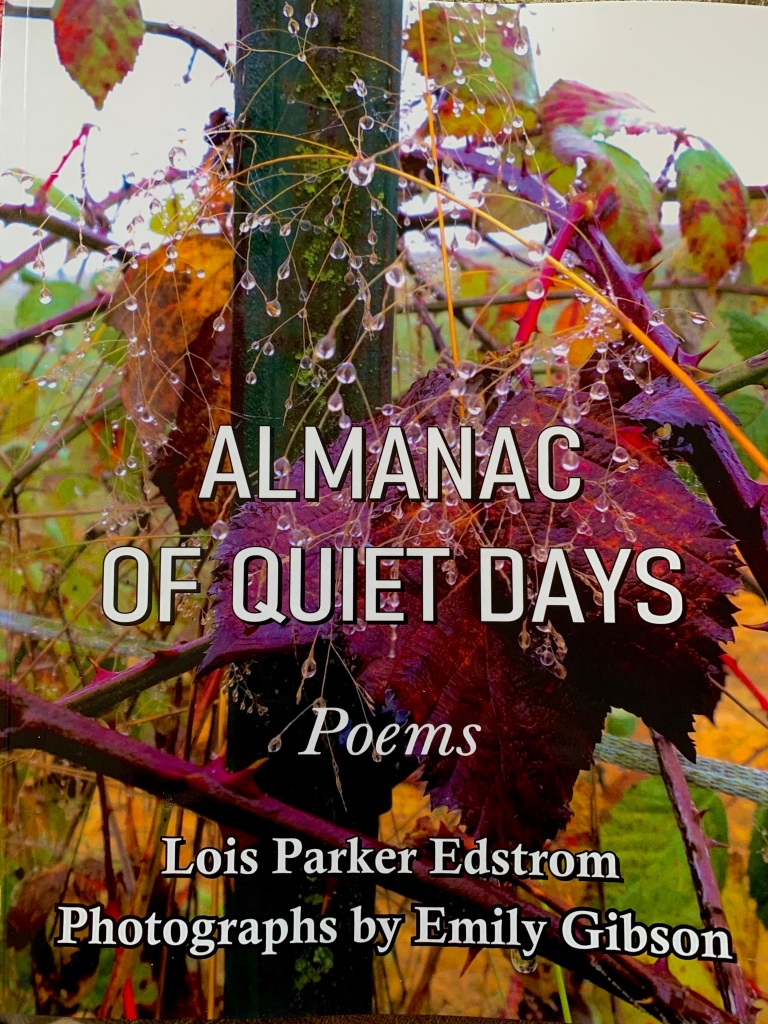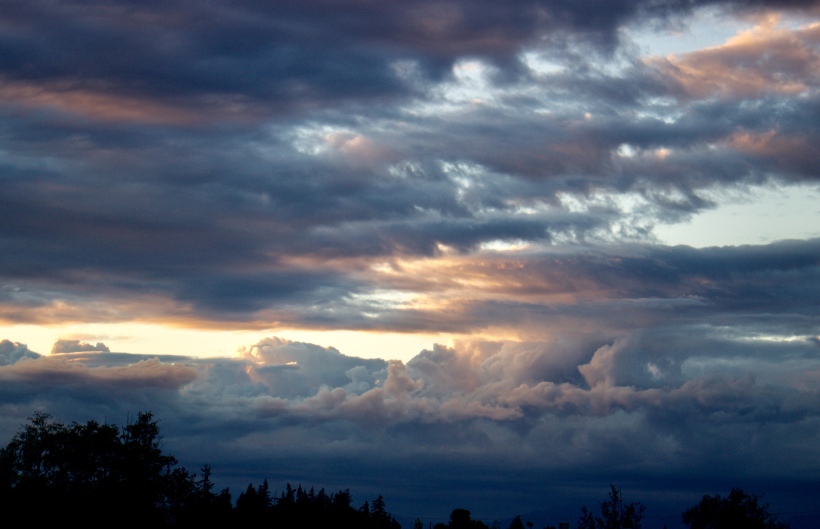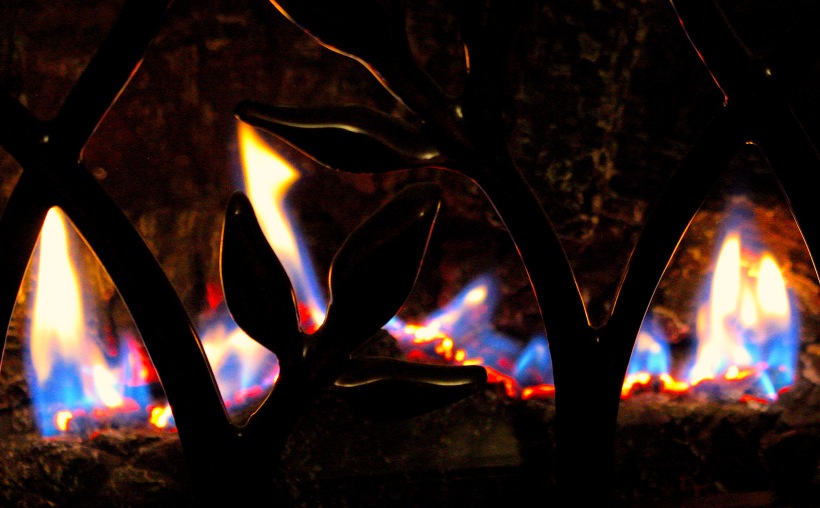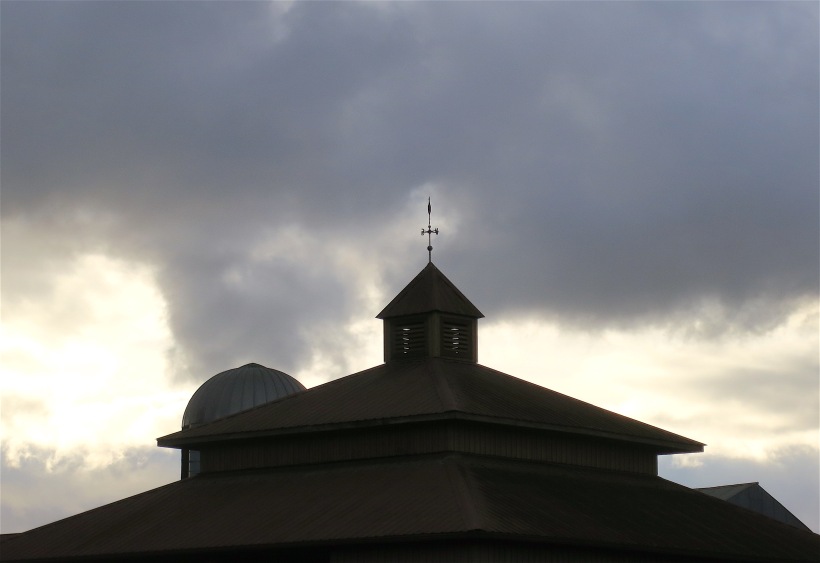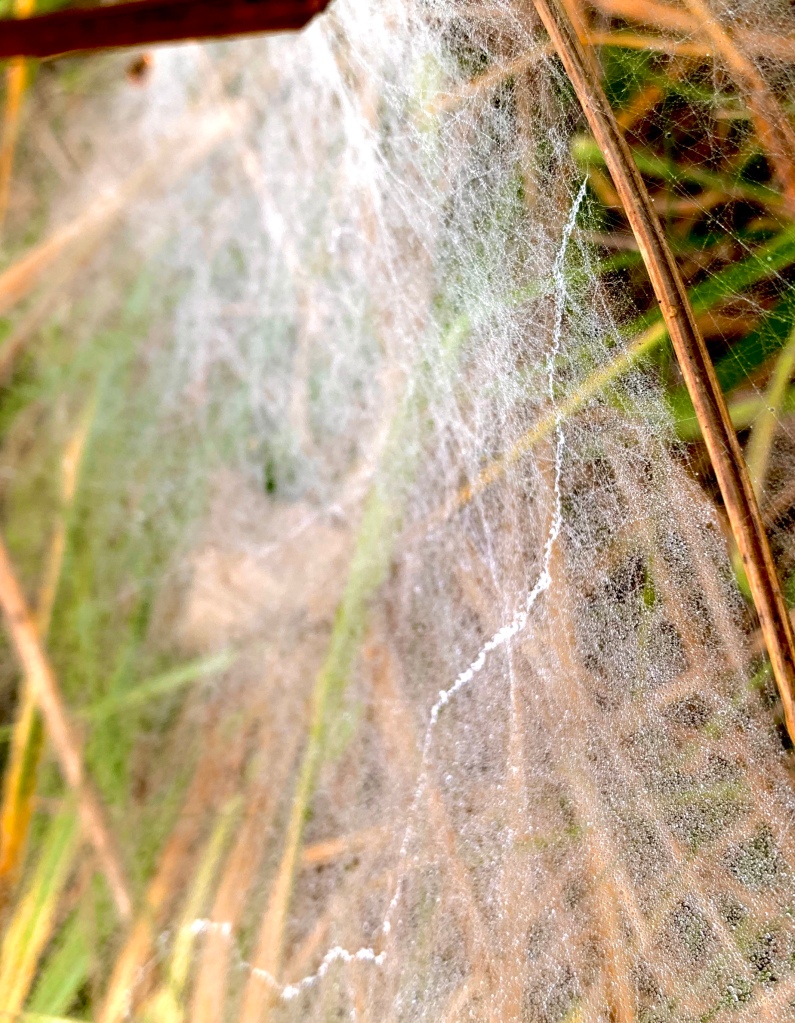
What a slow way to eat, the butterfly
is given by Nature, sipping nectar
one tiny blue flower at a time. Though
a Monarch in name, she’s made to scavenge
like the poorest of the poor, a morsel
here, a morsel there. A flutter of ink-
splattered orange wings. We don’t want to see
the struggle that undergirds the grace: the
ballerina’s sweat, or her ruined feet
hidden by tights and toe-shoes. She knows her
career will be as brief as it was hard
to achieve. Pollinated, the tiny
blue flowers are sated. The butterfly
flits away, hoping to live one more day.
~Barbara Quick, “The Struggle That Undergirds the Grace.”


You have been my friend. That in itself is a tremendous thing.
I wove my webs for you because I liked you.
After all, what’s a life, anyway?
We’re born, we live a little while, we die.
A spider’s life can’t help being something of a mess,
with all this trapping and eating flies.
By helping you, perhaps I was trying to lift up my life a trifle.
Heaven knows anyone’s life can stand a little of that.
~E. B. White, Charlotte’s Web



…And when the sun rises we are afraid
it might not remain
when the sun sets we are afraid
it might not rise in the morning
when our stomachs are full we are afraid
of indigestion
when our stomachs are empty we are afraid
we may never eat again
when we are loved we are afraid
love will vanish
when we are alone we are afraid
love will never return
and when we speak we are afraid
our words will not be heard
nor welcomed
but when we are silent
we are still afraid
So it is better to speak
remembering
we were never meant to survive.
~Audre Lorde from “A Litany for Survival”



We are here so briefly.
We were never designed to survive forever on this earth
yet we try to run the clock out as long as we can.
Just one day more.
We are here because of struggle –
the pain of our birth, whether the cry of our laboring mother,
or our own wrestling free of the cocoon or the shell,
our daily work to find food
to feed ourselves and our young,
the upkeep and maintenance of our frail and failing bodies,
our ongoing fear we’ll be taken
before we can make a difference in another’s life.
If there is a reason for all this (and there is):
our struggle forms the grace of another’s salvation.
The flowers bloom to feed the butterfly,
the butterfly pollinates the flower,
ensuring the next generations of both.
The silent and weakened find their voice
so that the next generation can thrive.
Heaven knows,
anyone’s life can stand a little of that.
Just one day more, Lord. Please – one day more.
Tomorrow we’ll discover
What our God in Heaven has in store
One more dawn
One more day
One day more…
~from Les Miserable



A new book available from Barnstorming available to order here:
